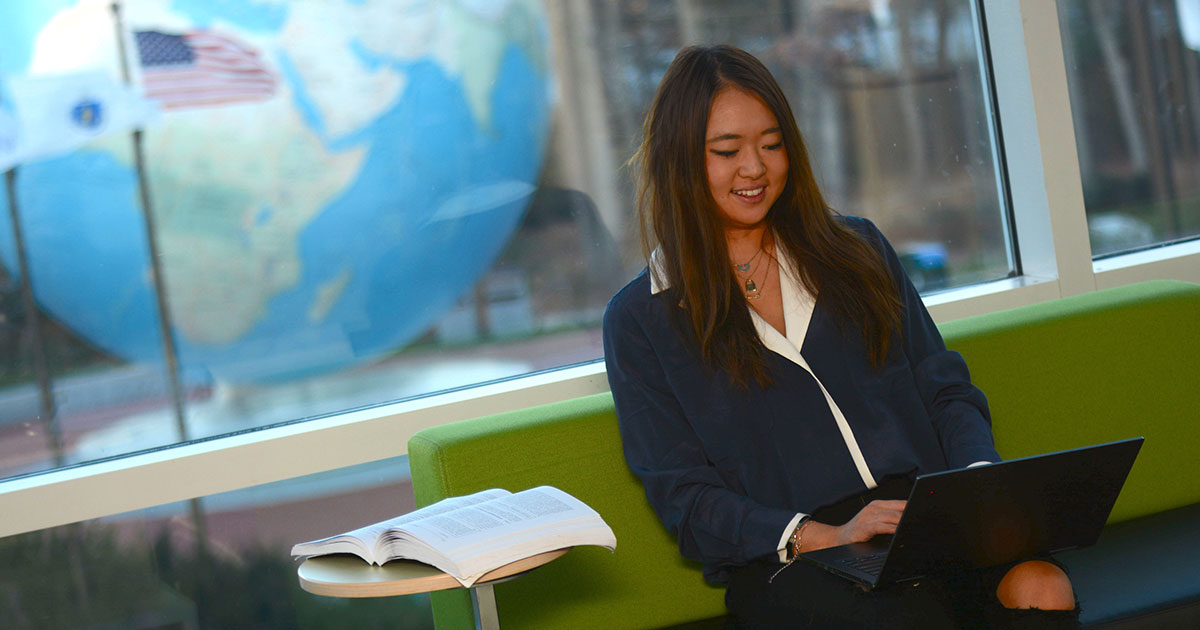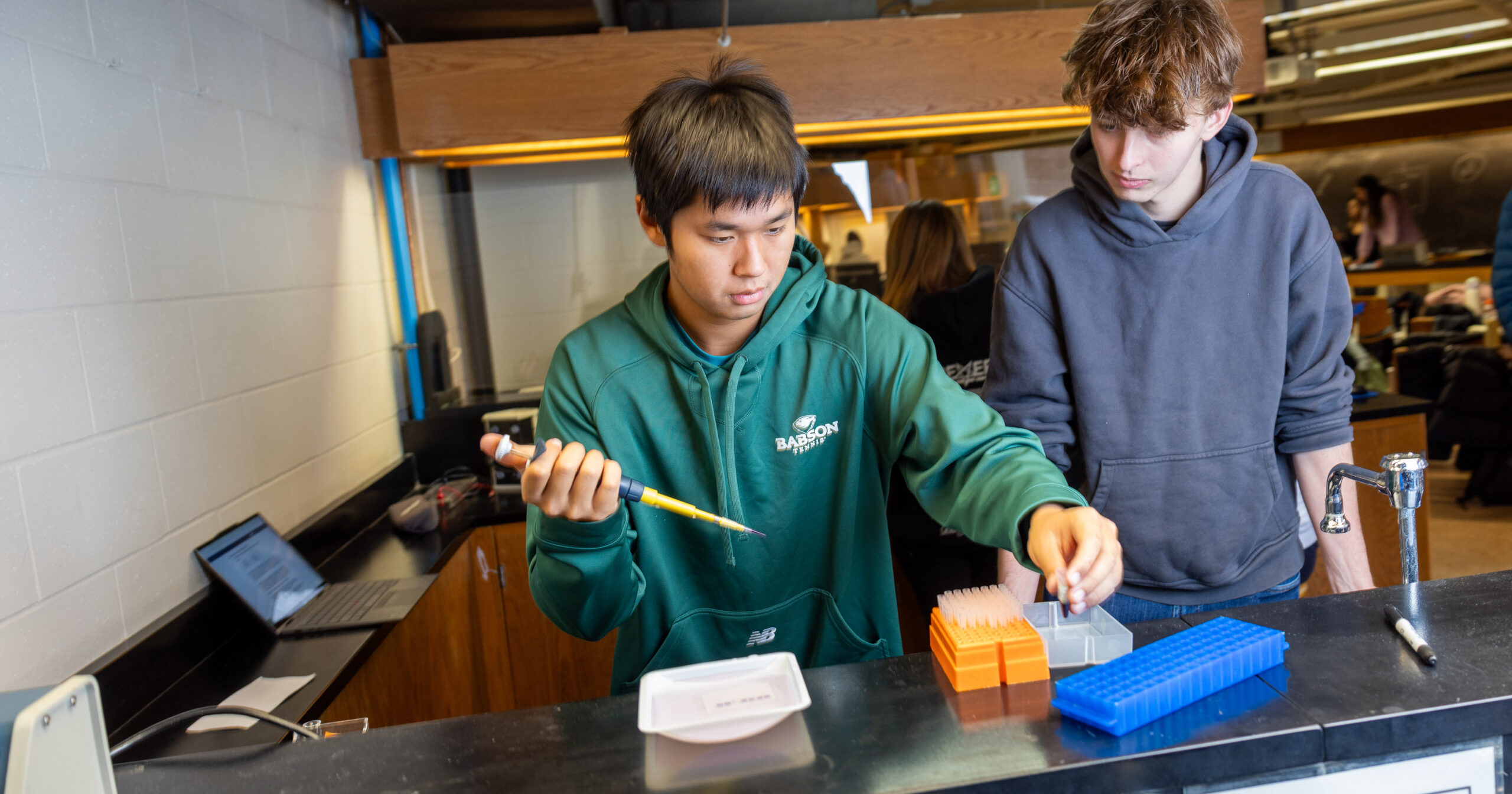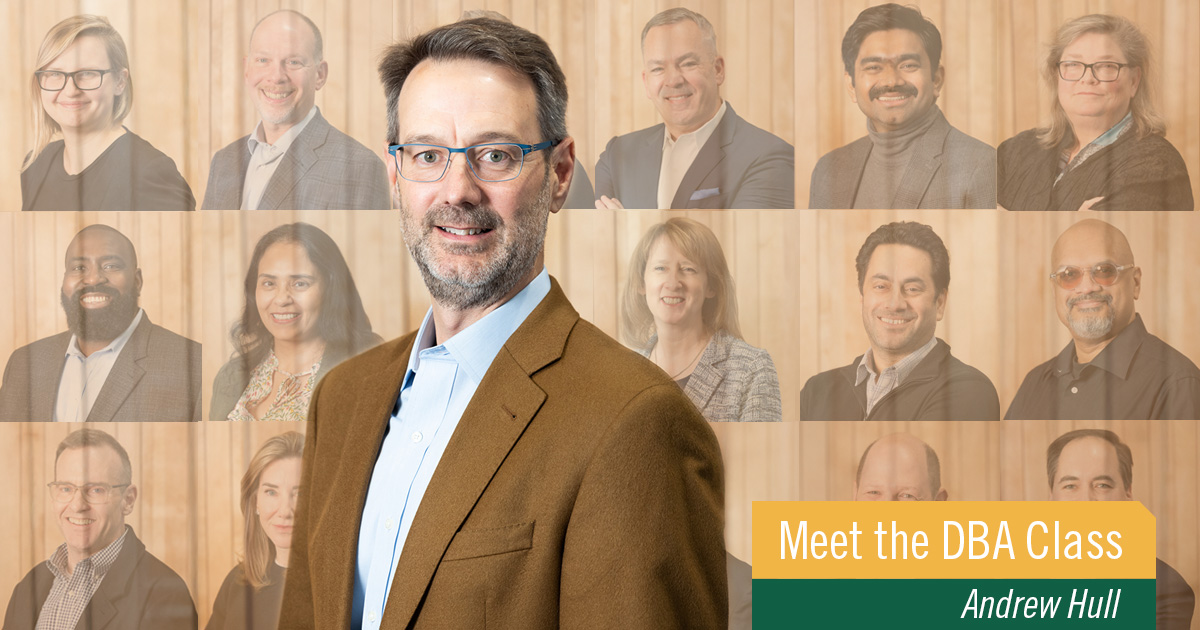Yes, Students Study Law at Babson

When the legal contract was placed in front of Eagle Wu ’20, the young entrepreneur didn’t flinch.
His startup, a virtual reality training company called VINCI, was about to start work for the Air Force. It was a big opportunity for the new venture, and when the time came to sign the wordy Air Force contract, loaded with legalese, Wu was not flummoxed or intimidated. He actually had a good understanding of what the contract said.
That’s because Wu had taken a law class at Babson College that covered contracts. “I only took one law class, but it was a good enough foundation,” says Wu. “It was very helpful.”
Think of Babson, and your mind may understandably turn to entrepreneurship. But the College offers a slew of academic concentrations, including legal studies. Students take law classes at Babson for a variety of reasons. They may be interested in attending law school, or they may know how important some basic knowledge of law is to starting a business.
Or, they may take a law course out of mild curiosity and come away with a new realization, that legal studies can be helpful and practical to a life and career. “They might not expect it beforehand, but they quickly see how essential law is,” says Adam Sulkowski, associate professor of law and sustainability and a Babson Research Scholar.
Going to Law School
The study of law is popular enough at Babson that more than 100 students are members of the Babson Law Society.
Lauren Park ’20 serves as the organization’s president. Ever since high school, Park has had an interest in philosophy. That subject speaks to the core of the human condition, and it also forms the foundation of our legal system.
“The legal system is what we created based on how we interact as humans, on what it means to live together in a society,” says Park. “Philosophy is critical to that.”
Park plans to attend law school after she graduates. With a father who is an entrepreneur in the tech industry, she has grown up surrounded by business and would like to focus on intellectual property law.
In her role with the Babson Law Society, Park leads a group that runs a variety of programs, including a speaker series, info sessions on law school applications and legal internships, and LSAT study workshops. “We are so immersed in business classes,” says Park, “that we often neglect to prepare for law school.”
When Starting a Business
Law classes at Babson aren’t just for students who are considering law school. The skills practiced in class for resolving conflict—spotting an issue, checking your emotion, looking for solutions—have uses for everyone, whether they are dealing with a business partner or a roommate. “It’s a life skill,” says Sulkowski.
For entrepreneurs, Sulkowski believes the study of law is critical. He identifies five legal issues they will continually face when starting a business: contracts, intellectual property, human resources, liability, and business formation. “I refer to them as the big five,” he says. “You cannot avoid these questions.”
Yes, attorneys can offer assistance, but many times, say when negotiating equity splits, a founder needs to be directly involved. “You can’t delegate that completely to your lawyer,” says Sulkowski. “You need to read that contract. You need to know your interests. Law is too important to leave to the lawyers.”
Wu knows this firsthand. He started VINCI while on a leave of absence from Babson. The growing business now counts the Air Force, which uses VR to train those tasked with maintaining aircraft, as a client. Siemens Gamesa Renewable Energy, which utilizes VR to safety train employees who work on wind turbines, also is onboard as a pilot tester.
Among other legal issues, Wu has worked to protect his company if someone gets injured while using its VR programs, and he has made sure that VINCI’s intellectual property is protected when he has signed contracts with the government and independent contractors.
Wu credits his Babson law studies for making him aware of these legal issues and many others. “You have to think about law,” he says. “You have to protect yourself.”
Posted in Community




